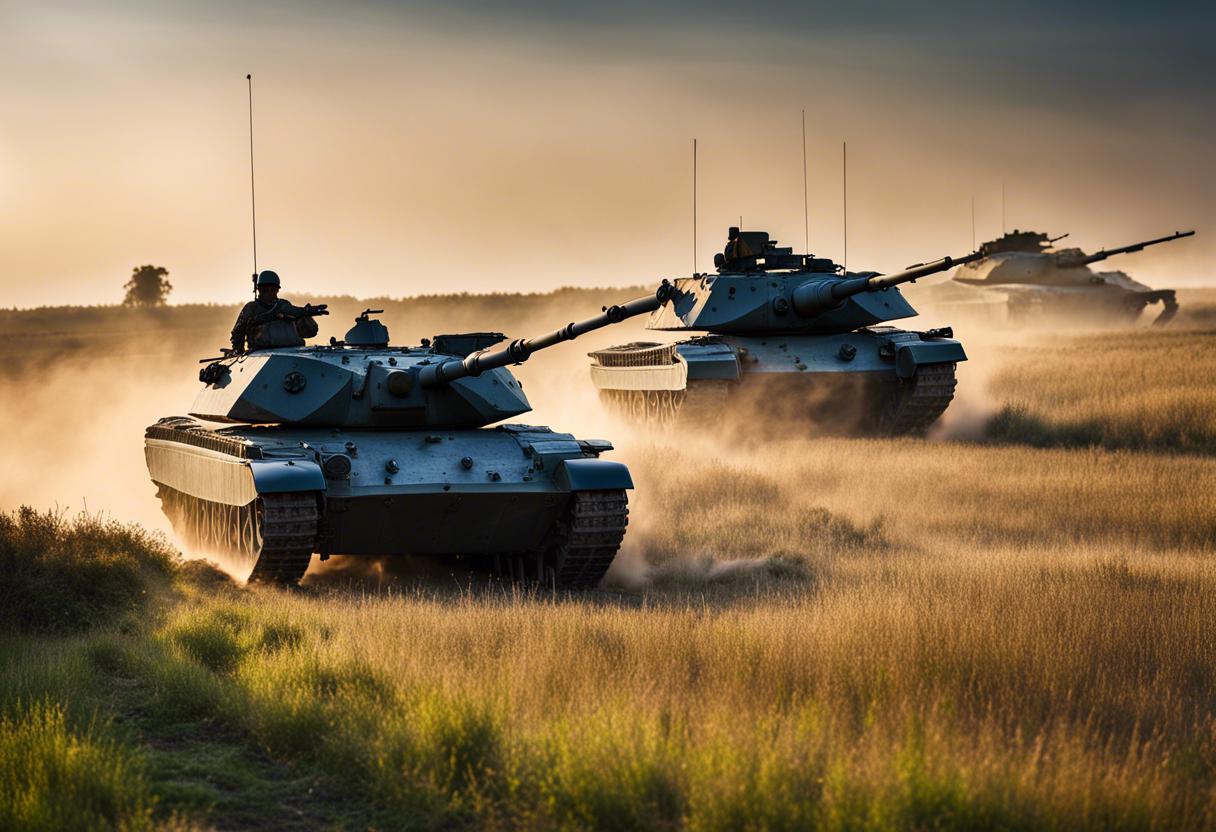Ukraine has penned a significant security agreement with Spain, expected to see Madrid providing air-defence missiles, tanks, and varied weaponry to Kyiv in light of rising concerns about potential Russian aggression on the northern border of Ukraine. Spanish support will involve an injection of €1 billion in military aid this year and €5 billion spread over a three-year period.
In tandem with this the deal also covers humanitarian support, economic recovery aid and reconstruction, buttressing reforms in Ukraine on the track toward joining the EU and NATO, and amplifying sanctions against Russia. “These various facets of collaboration are all encompassed in our pact,” asserted Ukrainian President Volodymyr Zelenskiy during a meeting in Madrid.
Whilst in Spain, Zelenskiy held conversation with Spain’s King Felipe and Prime Minister Pedro Sánchez. Local press reported that Madrid was poised to supply Kyiv with US-manufactured Patriot anti-aircraft missiles, renovated Leopard tanks from Germany, and a complexion of Spanish-made equipment, featuring everything from artillery shells to drones.
Ukraine is markedly vexed with the reluctance of many Western nations to furnish air-defence systems to them, and by the stipulation these nations place on their armaments, that they are not to be deployed for offensive strikes inside Russia – even in response to troops and military equipment gathering in anticipation of an attack on Ukraine.
Zelenskiy stated “At present, our biggest issue is that more than 3,000 guided aerial bombs (KABs) are deployed by Russia each month, specifically targeting individuals”. He added, “Those partners who hesitate to provide specific weaponry must comprehend that air defence means just that – defence. It’s not about offence. And protecting people is at the heart of it”.
Last Friday, NATO Secretary General Jens Stoltenberg suggested that allies should contemplate removing restrictions on the use of arms supplied by the West, noting “to prevent Ukraine from utilising these weapons against lawful military targets on Russian soil severely hampers their ability to safeguard themselves”.
Meanwhile, Dmitry Peskov, spokesperson for the Kremlin, retorted on Monday: “NATO is amping up the escalation, indulging in martial rhetoric… These are the circumstances we are compelled to respond to.”
Earlier this month, Mr Zelenskiy’s trip to Spain was delayed as a consequence of Russian forces breaching Ukraine’s border in the Kharkiv region. This prompted a takeover of several neglected or scarcely populated border villages before Russian movement was halted.
The battle for Vovchansk is ongoing, however, Mr Zelenskiy asserts that Ukraine’s military has regained control of the border area, from which over 10,000 individuals were evacuated this month due to severe Russian artillery fire.
During a visit to Kharkiv, a city that now faces incessant missile and bomb attacks, Mr Zelenskiy expressed concern that Russia might be planning additional assaults 90km northwest from the city, as troop buildup is evident along their border.
Experts highlight Russia’s desire to overstretch Ukraine’s outmatched and outgunned military forces, forcing them to move soldiers to the northern Kharkiv and Sumy regions, thereby weakening Ukraine’s defence over the Donetsk province in the east, which is currently of great interest to the Kremlin.
On Monday, according to the Russian defence ministry, they have managed to secure control over the Netailove village in the Donetsk region and the Ivanivka village in the Kharkiv province.

